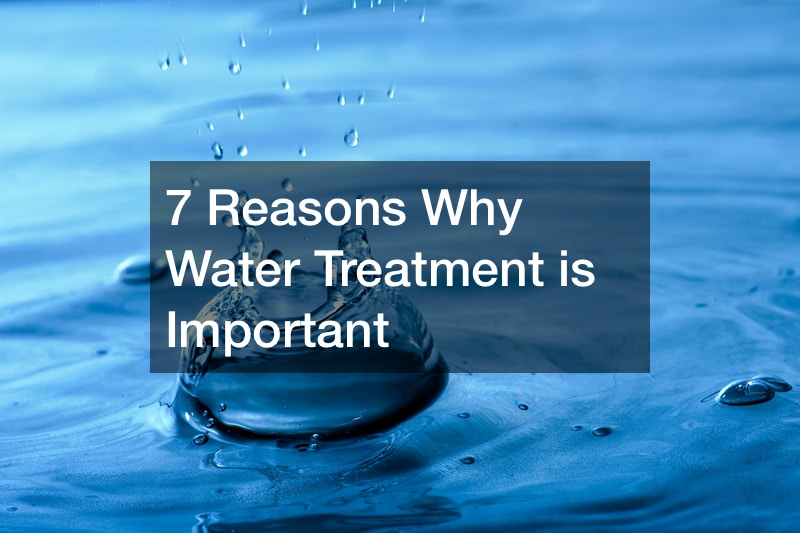
Having clean drinking water is very important. It is something that a lot of people in developed countries take for granted, as there are a lot of people in Third World countries who do not have access to clean drinking water and are often having to deal with the associated health problems, including dehydration. It is wonderful that people in countries such as the United States have access to clean drinking water, and they also have access to different water purification tools that can make their water even cleaner in most cases.
If you are interested in water purification systems, you might have many questions about them and which one to choose. For example, you might wonder, what is involved in water purifier installation? What are the best water technology products that are available? What are the different water filtration systems that I should try? What should I know about the average drinking water supply system? Generally speaking, what is the first step in water treatment? It would be a good idea to talk to a professional who works in the field of water treatment if you want the answers to these questions, as they likely have the expertise and experience to be able to help you.
Many people all around the world are suffering from water shortages. The human body can go up to three weeks without food, but only three to four days without water. This proves how important water is.
To help generate clean, safe water during these times, there are water treatment systems in place. Water treatment systems use various physical and chemical processes to filter dirty water and purify it so that it can be recycled. To go green, most manufacturing companies are now taking industrial water through water treatment.
This is what we reap by ensuring we have put adequate water treatment systems in place.
1. Water Treatment Produces Clean, Re-Usable Water
This is the primary reason for waste water treatment. Using water treatment systems help us gain access to more clean water, which we can never have too much off. In the long run, this makes clean water cheap and accessible, thus saving many people’s lives.
2. Water Treatment Helps in Waste Reduction
Dirty kitchen water, water down your bathroom drain, water from your laundry machine- all this water can be repurposed and reused. This reduces the amount of wastewater that is released into the environment by significant margins. A long term benefit of water treatment is it reduces the health risks tied to water pollution.
Water treatment is an environment-conscious process, thus helps reduce the amount of money a country spends on environmental rehabilitation programs.
3. Water Treatment Helps in Generating Energy
Waste water treatment systems are engineered in a way such that sludge collects during the treatment process. This sludge is quite useful because it contains a lot of biodegradable material. It is collected in particular, enclosed digesters where it is treated with anaerobic bacteria at moderate temperatures. The methane gas
produced during this process is burned to produce electricity.
This energy can be used to power the water treatment systems, making them self-sustainable. By reducing our dependence on non-renewable sources of energy like fossil fuels, it helps reduce our carbon footprint.
4. Helps in Producing Fertilizer
Another great benefit of putting up water treatment systems is that a lot of biodegradable material is left behind after the process. The matter is dried in drying lagoons and then used as a natural fertilizer. This fertilizer is sold to local farmers at affordable prices, thus increasing crop yields, and in this way, creating food security.
This natural fertilizer also reduces the need for chemical fertilizer, and this helps reduce pollution.
5. Water Treatment Helps in Environmental Remediation
You must be wondering: what is environmental remediation? Generally, it deals with the removal of pollutants from elements of the environment, that is, water, soil, and sediment. Having water treatment systems in place implies that dirty water is cleaned and sanitized, stripping it off all physical and chemical contaminants. This goes a long way in helping clean up the environment.
6. Water Treatment Improves the Clarity and Taste of Water
Water treatment systems employ various filtration methods, alongside providing arsenic treatment for wastewater. This greatly enhances the overall look of your water and also improves its taste. Water treatment systems adequately combine chemical solutions and licensed equipment to ensure water is treated correctly.
7. It Produces Safe Water for Appliances
During treatment, “hard” water- which is water that has significant amounts of mineral salts- is “softened”- meaning these mineral salts are filtered out of the water.
Hard water is bad for your appliances, especially kettles. It leads to the formation of a white layer of scum that slowly but steadily makes them less efficient. Using treated water protects your appliances from this, and this implies that they last much longer and need less detergent during cleaning.
Final Words

Clean water is an essential human need. Installing a water treatment system at your home will ensure that you have more clean water than you need and will help reduce wastage. It will also help reduce your carbon footprint and save you lots of money in the long run.
